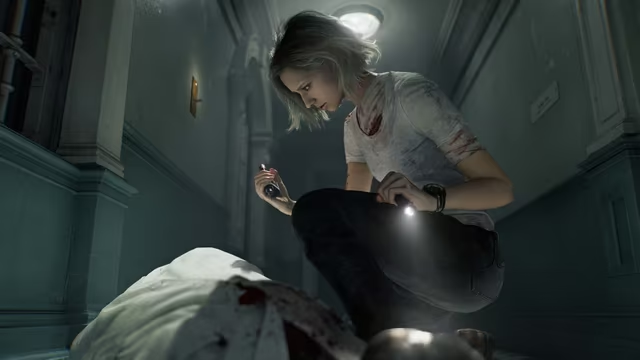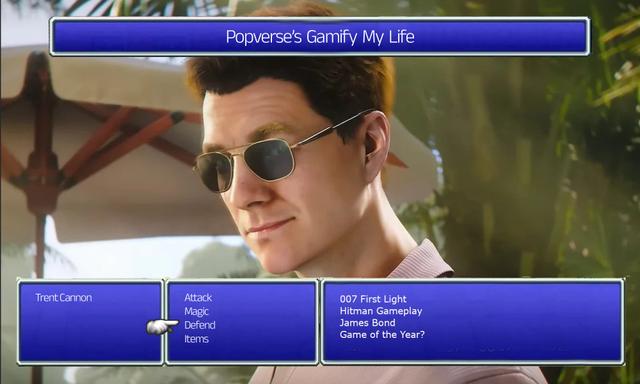If you click on a link and make a purchase we may receive a small commission. Read our editorial policy.
A guide to Hercules: Could this mythical hero be the MCU’s next big thing?
The Marvel Universe has plenty of superhero gods and Hercules is poised to become its next big thing. Here’s a full history of the Olympian Avenger.

Just as the Norse pantheon of myths and monsters play a major role in the Marvel Universe, so too does the Greco-Roman pantheon of deities, including the mighty Hercules. Like his classical mythological counterpart, Hercules is widely regarded as the strongest of the Olympian demigods and has a surprisingly extensive history with his fellow Marvel superheroes. In addition to his solo adventures, Hercules has served on a variety of major teams, battling many of the most fearsome foes that the Marvel Universe has to offer while contending his family’s deeply dysfunctional dynamic and long-running history of divine backstabbing.
With the Greek pantheon making its full Marvel Cinematic Universe debut in the 2022 movie Thor: Love and Thunder, here’s a look at the Marvel Universe’s Pride of Olympus, from his comic book origin story to how the fabled Prince of Power has helped Earth’s Mightiest Heroes defend the entire universe across his prolific history.
Who Is Hercules?

The first appearance of Marvel’s Hercules occurred in 1964’s Avengers #10, by Stan Lee and Don Heck, with the ancient character evidently being drawn from the Greco-Roman era into the relative present. The circumstances behind this introduction was largely ignored in subsequent appearances by the character, with the 1998 maxi-series Avengers Forever, by Kurt Busiek, Roger Stern, Carlos Pacheco, and Jesus Merino revealing this iteration of the character to be an extraterrestrial imposter. The true, enduring version of Hercules was created by Stan Lee and Jack Kirby in 1965’s Journey Into Mystery Annual #1 as a rival of Thor’s, defeating the Norse God of Thunder in a skirmish before being rescued by Thor from a magical contract by Hercules’ conniving uncle Pluto.
After being bewitched by the Enchantress, Hercules attacks the Avengers but later joins the team on a probationary basis after he is restored to his senses and exiled from Olympus by Zeus for his continued impudence. After his brief tenure with the Avengers, Hercules becomes a founding member of the superhero team the Champions, created by Heck and Tony Isabella in 1975, with Hercules striking up a short-lived romance with his teammate Black Widow. After the dissolution of the Champions, Hercules plays a prominent role in the classic 1986 Avengers storyline 'Under Siege,' by Stern and John Buscema, rendered comatose for a time after being overwhelmed by the Masters of Evil.
After confronting his father in 1995’s Avengers #384, by Bob Harras, Terry Kavanagh, and Mike Deodato, Jr., Hercules has his immortality removed by Zeus in retaliation, with Hercules becoming despondent. Following this, Hercules would play a visible role in the crossover events Civil War and World War Hulk, assisting Captain America’s anti-registration heroes in the former storyline and working with Amadeus Cho to reason with the Hulk in the latter. Hercules’ and Amadeus’ partnership would continue beyond World War Hulk, with Hercules facing off against his estranged half-brother Ares and leading a team of superhero gods against the Skrull deities during the 2008 crossover event Secret Invasion.
After working with the sinister Japanese god Amatsu-Mikaboshi during Secret Invasion, the spider deity attempts to conquer the Marvel Universe. Newly empowered by a device developed by Amadeus, Hercules leads the fight against Amatsu-Mikaboshi for the fate of the universe during the 2010 crossover event Chaos War, by longtime Hercules writers Greg Pak and Fred Van Lente and joined by artist Khoi Pham. The event ends with Hercules completely expending his powers to seal away the Chaos King, saving the universe but reverting himself into a mortal man. During his time depowered, Hercules continues to operate as a superhero out of New York City, albeit relying on mythical weapons and his own wits rather than his former superhuman abilities.
Hercules reconciles with Zeus in 2011’s Herc #9, by Pak, Van Lente, and David Hahn, with his father restoring his powers before the two gods parted ways again, this time on good terms. These happy times for Hercules are short-lived, however, with Nyx, the Queen of Night laying waste to Mount Olympus and much of the Olympian pantheon in the 2019 miniseries Avengers: No Road Home. By the end, Hercules avenges his fellow gods by defeating Nyx, with him and the rest of the Olympian pantheon reborn and upgraded by their ordeal against the Queen of Night.
Hercules’ Powers and Abilities

Given the number of times that Hercules has had his godly powers altered or temporarily removed, Hercules' powers are often inconsistently and convolutedly depicted. In his initial appearances, Hercules possessed superhuman strength, endurance, and speed on par with Thor and the Hulk, able to hold his own against the two heroes. Hercules’ Olympian physiology effectively makes him immortal, with slowed aging that has allowed him to live for millennia, and with a slightly accelerated healing factor, albeit not at the same rate as characters like Wolverine or Deadpool.
In addition to his divine powers, Hercules has trained his body and mind to become one of the world’s greatest warriors. This extends to Hercules being an expert in various martial arts styles and tracking, while he has shown to be adept with a wide variety of weapons, including modern armaments. However, one of Hercules’ more common weapons is a mythical mace forged from golden adamantium that is able to withstand blows from Mjolnir.
During the periods of his life when he lacks his usual godly power levels, Hercules is still depicted as being at the peak of human athleticism. Retaining his vast lifetime of combat training, the depowered Hercules still has access to an arsenal of magical weapons that help him hold his own against much more formidable opponents until his powers are eventually returned to him.
How Hercules Fits in the Marvel Cinematic Universe

With the Marvel Studios’ film Thor: Love and Thunder showcasing several different pantheons in the MCU, one of the holy hosts that play a prominent role as the Olympians. The Asgardian God of Thunder is taken into custody by Zeus, memorably played by Russell Crowe, as the villainous Gorr the God Butcher targets deities across the MCU as part of his bloody vendetta. Both in the classic myths and comic books, Zeus is the father of Hercules, with the character’s possible inclusion in Love and Thunder opening the door for Hercules to make his own full-fledged introduction into the MCU. Previously, fans speculated that Hercules was to make his MCU debut in Eternals, though the Greco-Roman deities were absent from the 2021 film.
In the meantime, Hercules has made appearances in animated Marvel series and video games, starting with the 1966 series The Marvel Super Heroes as a recurring supporting character in the Thor segments. Decades later, Hercules would appear as a supporting character in The Super Hero Squad Show, Hulk and the Agents of S.M.A.S.H., and, most recently, the 2012 series Avengers: Secret Wars.
Hercules made his video game debut in 2009’s Marvel: Ultimate Alliance 2 as a non-playable character who served as a boss for players that chose to support Iron Man’s pro-registration faction of heroes. Hercules would go on to be a playable character in online games Marvel: Avengers Alliance and Marvel Heroes, lending his legendary muscle to the proceedings.
Check out Popverse's review of Thor: Love and Thunder. All gods will die—Thor: Love and Thunder is an ambitious and emotional film that doesn't always flow.
Follow Popverse for upcoming event coverage and news
Find out how we conduct our review by reading our review policy
Let Popverse be your tour guide through the wilderness of pop culture
Sign in and let us help you find your new favorite thing.
















Comments
Want to join the discussion? Please activate your account first.
Visit Reedpop ID if you need to resend the confirmation email.